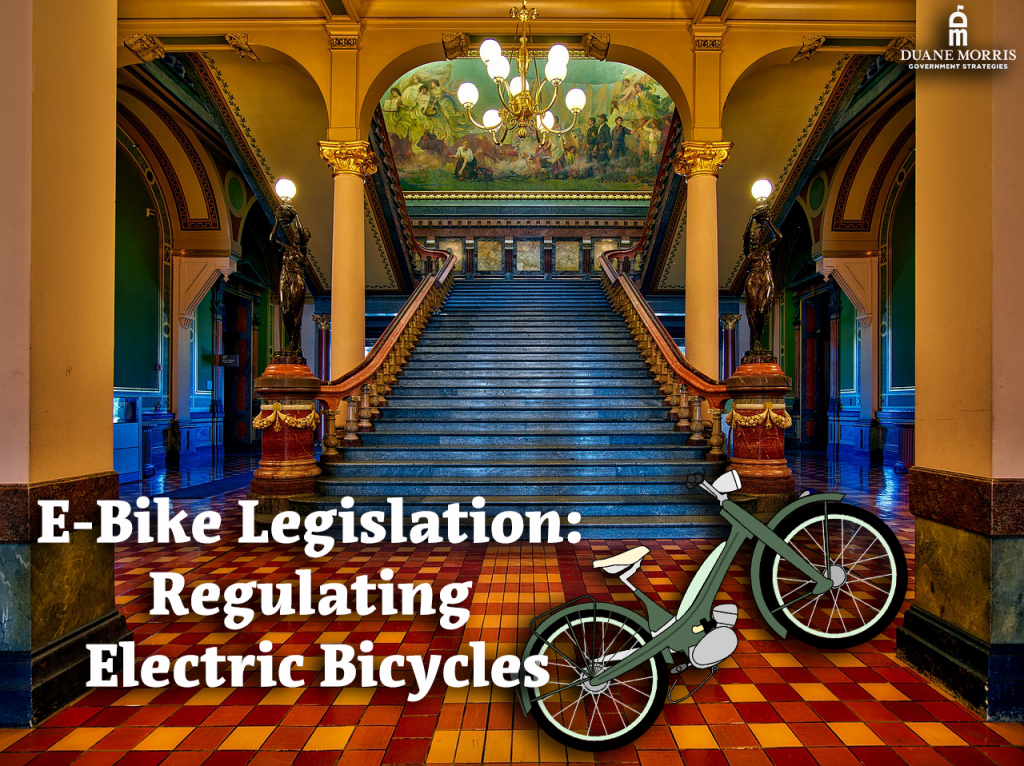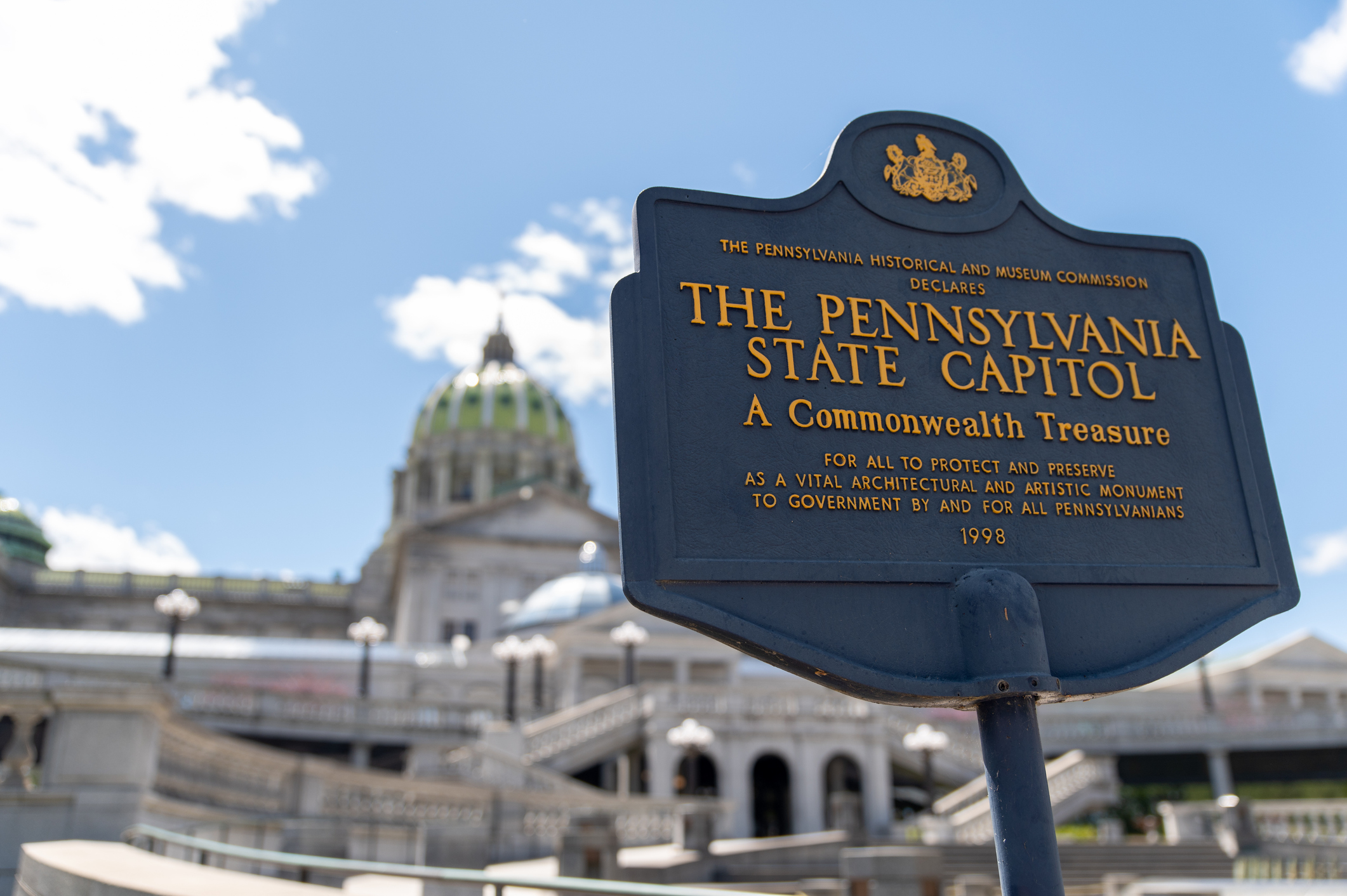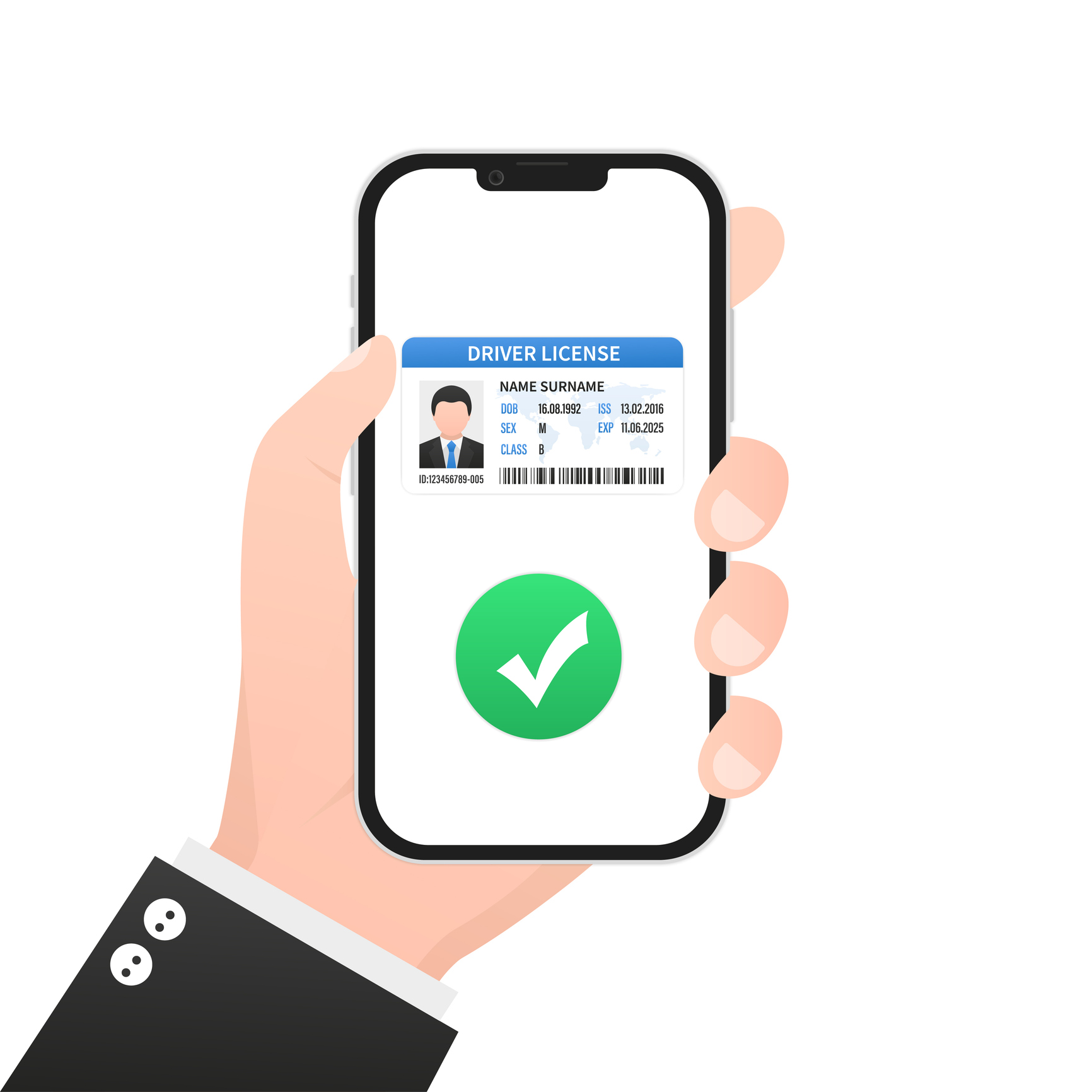
The sale of electric bicycles—or e-bikes—is expected to grow from 3.7 million in 2019 to 17 million by 2030, with potentially 10 million e-bikes sold by 2024. As with any emerging technology and devices (see our UAV legislation article), government regulation has not been far behind. In recent years there has been a flurry of activity related to e-bike legislation at the state level. Specifically, electric bicycle legislation has been passed or introduced in various states to address revising outdated state laws that classify e-bikes as mopeds and scooters (and include “burdensome” licensure, registration, or equipment requirements) and creating three-tiered class systems based on speed limits/capabilities.
Iowa Electric Bicycle Legislation: Newest Update
The Iowa legislature passed House File 493 recently, regulating electric bicycles. This e-bike legislation defines “low-speed electric bicycles” as deices having a saddle or seat for the user of a rider, two or three wheels equipped with fully operable pedals, and an electric motor of fewer than 750 watts that fits one of the three classes of electric bicycles which regulates the speed of e-bikes. The three classes are as follows:
- Class 1: a low-speed electric bicycle equipped with a motor that may be used to provide assistance only when the rider is pedaling and that ceases to assist when the bicycle reaches a speed of 20 miles per hour or more.
- Class 2: a low-speed electric bicycle equipped with a motor that may be used exclusively to propel the bicycle and cannot assist when the bicycle reaches a speed of 20 miles per hour or more.
- Class 3: a low-speed electric bicycle equipped with a motor that may be used to provide assistance only when the rider is pedaling and that ceases to assist when the bicycle reaches a speed of 28 miles per hour or more.
The bill further excludes low-speed electric bicycles from the definitions of “vehicle,” “motorcycle,” and “motorized bicycle” under state law, excluding e-bikes from license and permit requirements. The bill also maintains that a low-speed electric bicycle may be operated in places where bicycles are allowed to operate, such as streets, highways, roadways, shoulders, bicycle lanes, bikeways, and bicycle or multi-use paths.
Additionally, House File 493 requires manufacturers or distributors of e-bikes to permanently attach labels to all e-bikes manufactured or distributed after January 1, 2022. The labels will include the class of the e-bike, the top assisted speed, and the motor wattage.
California E-Bike Legislation
In December, California lawmakers introduced AB 117 to establish the Electric Bicycle Incentive Pilot Project, providing rebates for those who purchase electric bicycles. Under the bill, the California Air Resources Board (CARB) would establish the pilot project under the existing Air Quality Improvement Program (AQIP).
CARB would provide guidelines with the following goals:
- Maximize replacement of motor vehicle trips with electric bicycle trips;
- Prioritize funding for individuals from low-income households;
- Support related programs and benefits, such as safety education, with up to 10% of funding from the pilot project;
- Support local small businesses and nonprofits, including bike retail shops and community bike shops; and
- Collaborate with other state departments and agencies to enforce safeguards against fraudulent activities by those who sell and buy e-bikes.
CARB must also submit a mid-cycle and end-of-program evaluation of the pilot project to the lawmakers, which will include:
- The number of incentives issued;
- The total cost of the project’s administration;
- A quantitative analysis of the benefits and co-benefits of the pilot project, including the number of personal vehicle trips replaced, vehicle miles traveled avoided, and the amount of reduction in greenhouse gas emissions;
- A quantitative analysis of the impacts of the pilot project on low-income, medium-income, and high-income purchasers’ decisions in the e-bike markets; and
- A quantitative analysis of how many applications were received from and funding provided to, those from low-income households.
AB 117 passed the Assembly Transportation Committee and was re-referred to the Committee on Appropriations.
Washington Electric Bicycle Legislation
In March, the Washington House passed HB 1330, providing sales tax exemptions for purchasing electric bicycles and related cycling equipment. In Washington, the current state sales and use tax rate is 6.5%, with local sales taxes varying 0.5%–3.9%.
Specifically, the bill would exempt the sales of new e-bikes and up to $200 in related cycling equipment from the state’s sales and use tax. The exemption would expire on May 1, 2027, or the date that $500,000 in total retail sales tax exemptions have been granted, whichever occurs first.
The Washington Senate is currently considering the measure following a hearing in the Senate Committee on Ways & Means on March 23.
Washington currently defines electric bicycles as two or three-wheeled cycles with a saddle, fully operative pedals for human propulsion, and an electric motor with no more than 750 watts of power. State law further defines three classes of e-bikes:
- Class 1: an electric-assisted bicycle in which the motor provides assistance only when the rider is pedaling and ceases to assist when the bike reaches 20 or more miles per hour.
- Class 2: An electric-assisted bicycle in which the motor may be used exclusively to propel the bicycle and cannot assist when the bicycle reaches a speed of 20 miles per hour.
- Class 3: an electric-assisted bicycle in which the motor provides assistance only when the rider is pedaling and ceases to assist when the bicycle reaches 28 miles per hour and is equipped with a speedometer.
Pennsylvania E-Bike Legislation
House Bill 2646 received some traction in Pennsylvania’s last legislative session, advancing past the House Transportation Committee before dying on the floor of the House. State law refers to e-bikes as “pedalcycles with electric assist” and, according to the bill’s sponsors, has a precise definition that does not allow for the various classes of e-bikes currently being manufactured. As such, HB 2646 would have defined three classes of e-bikes, similar to the states above:
- Class 1: the electric motor only provides assistance when the rider is pedaling and ceases to assist when the e-bike reaches 20 miles per hour.
- Class 2: the electric motor can propel the e-bike regardless if the rider is pedaling and ceases to assist when the e-bike reaches 20 miles per hour.
- Class 3: the electric motor only provides assistance when the rider is pedaling and ceases to assist when the e-bike reaches 28 miles per hour.
The bill also would have clarified where e-bikes could be operated. Specifically, all classes of electric bicycles would be allowed to be operated on roadways. Class 1 and Class 2 e-bikes may be used on any path that a bicycle is permitted unless prohibited by a local ordinance, and Class 3 e-bikes may be operated on paths adjacent to a highway or paths allowed by a local ordinance.
Federal Electric Bicycle Legislation
E-bicycles may get a boost as the Biden administration & Congress seek to promote sustainability through different means of transportation, addressing both the climate emergency and infrastructure. Congress has introduced several pieces of electric bicycle legislation that would promote the integration of e-bikes into American’s transportation network.
The Electric Bicycle Incentive Kickstart for the Environment or E-BIKE Act (H.R. 1019) would encourage the use of e-bikes through a consumer tax credit. The bill would allow a refundable tax credit for 30% of the cost of a qualified electric bicycle. The credit would be limited to $1,500 per taxpayer, less all credits allowed for the two preceding taxable years. The consumer tax credit would apply to new electric bicycles that cost less than $8,000 and would be fully refundable, allowing lower-income workers to claim the credit. A qualified electric bicycle would be a two-wheeled vehicle that is, among other things, equipped with an electric motor of fewer than 750 watts.
The Bicycle Commuter Act (H.R. 384) would give bike commuters pre-tax commuter benefits. The bill would modify existing tax exclusion for employer-provided fringe benefits for bicycle commuting. Specifically, the bill (1) repeals the suspension (for the period between 2018 and the end of 2025) of the exclusion, (2) includes bike-share and low-speed electric bicycle, and (3) modifies the limitation of the exclusion to provide for a specified monthly limitation amount (i.e., 30% of the parking fringe benefits amount).
The Bikeshare Transit Act (H.R. 382) would make bike-share systems eligible for federal transit dollars.
Latest News
Photo credit: iStock.com/sunstock As concerns over plastic pollution continue to grow, state legislatures across the country are revisiting and expanding policies aimed at reducing single-use plastic waste. Plastic bags, widely used for retail checkout, have [...]
Photo credit: iStock.com/Niiaz Sabirov In 2025, several U.S. states have introduced legislation to prohibit geoengineering, defined as intentional large-scale interventions in Earth’s atmosphere or climate systems, such as cloud seeding or solar radiation modification. These [...]
Photo credit: iStock.com/Hamburg Studios As Pennsylvania continues to navigate an evolving energy landscape, state leaders are proposing new approaches to ensure reliability, affordability, and sustainability. Governor Josh Shapiro recently announced his “Lightning Plan”, a six-part [...]
Photo credit: iStock.com/StudioGraphic As technology continues to evolve, digital driver's licenses (also known as mobile IDs) are gaining traction across the United States. States are increasingly exploring legislative measures to modernize driver identification systems, enabling [...]






Stay In Touch